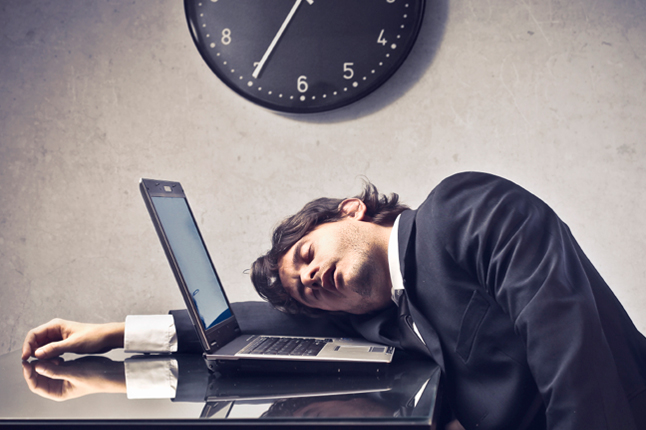
Can’t Sleep? It Could be Because of Where you Sit at Work
Finding it hard to sleep? It may not be due to stress, anxiety, or simply finding it difficult to wind down at the end of the day, a new study published in the Journal of Clinical Sleep Medicine has found that where a person sits at work may have a significant effect on their sleep patterns.
Working in a windowless environment can affect sleep
Researchers conducting the sleep study recruited volunteers, all of whom worked in an office environment. Around half of the volunteers worked in mostly windowless environments and the remainder worked in offices with frequent exposure to daylight via windows. Participants were questioned regarding their sleep patterns, levels of physical activity, and general lifestyle. Some of the participants wore wristbands that measured their activity while awake and asleep. The researchers found that overall, participants working in an area with natural daylight, slept on average for 46 minutes longer than participants working in a windowless environment. The study participants working without access to natural light, were found to have a poorer quality of life and disrupted sleep patterns.
The findings make sense, scientists have known for years that exposure to daylight is extremely important for our circadian clock, the clock that regulates our sleep and wake patterns. A lack of daylight can disrupt our internal clock, making it difficult to fall asleep and wake when we should. Researchers conducting this particular study recommend that offices are designed with more emphasis placed on sufficient daylight exposure for office workers, to promote a healthy work-environment. A lack of sleep can lead to short-term effects such as memory loss and lack of attention, decreasing workers productivity and increasing errors.
How to sleep better
If you have trouble sleeping, or work in an environment with limited exposure to natural light, there are steps you can take to regulate your sleep. Phytotherapy involves sitting near to an artificial-light box for around 30 minutes to 2 hours each day. It is recommended that you use a box that has a brightness of at least 10,000 lux, as this intensity will help to regulate your circadian rhythm better than a lower intensity light. If possible, try to expose yourself to sunlight in the morning, either by going for a walk outside, or by having breakfast next to a large window. Morning light helps to regulate your internal clock, telling your body that it’s time to wake up. Sleep experts also recommend that you vary the time of day that you wake up and go to sleep according to the seasons, to ensure you make the most of the day’s sunlight. Additionally, there are many forms of medication you could look into if this is the route you want to go down. With this being said, with anything your are taking, it is important to speak to a professional first before you go ahead with anything, as there are some individuals who have experienced benzodiazepine withdrawal symptoms while taking this drug, in the hopes of improving their insomnia. Everything is fine in moderation, but some can become dependant on medication, which doesn’t always result in the benefits you are looking for. Doing your research is very important in this situation.
As important as it is to ensure you have a daily dose of morning sunlight, it’s also important to limit your exposure to light-emitting devices, such as smartphones and tablets, prior to bedtime. These devices can disrupt your sleep, making it more difficult to fall asleep and wake in the morning.
Sources:
- http://www.telegraph.co.uk/science/science-news/11011043/Struggling-to-sleep-at-night-Blame-your-office.html – Struggling to sleep at night? Blame your office
- http://www.businessweek.com/articles/2014-08-11/office-workers-with-desks-near-windows-sleep-longer-and-better – You’re losing sleep just by working in a windowless cubicle
- http://health.howstuffworks.com/mental-health/sleep/basics/how-to-fall-asleep2.htm – Sunlight and Sleep
About SignatureMD
SignatureMD is one of the nation’s largest firms providing initial conversion and ongoing support services to concierge medicine physicians. SignatureMD currently partners with over 200 affiliated primary care physicians and specialists across 35 states, and its network is rapidly expanding.